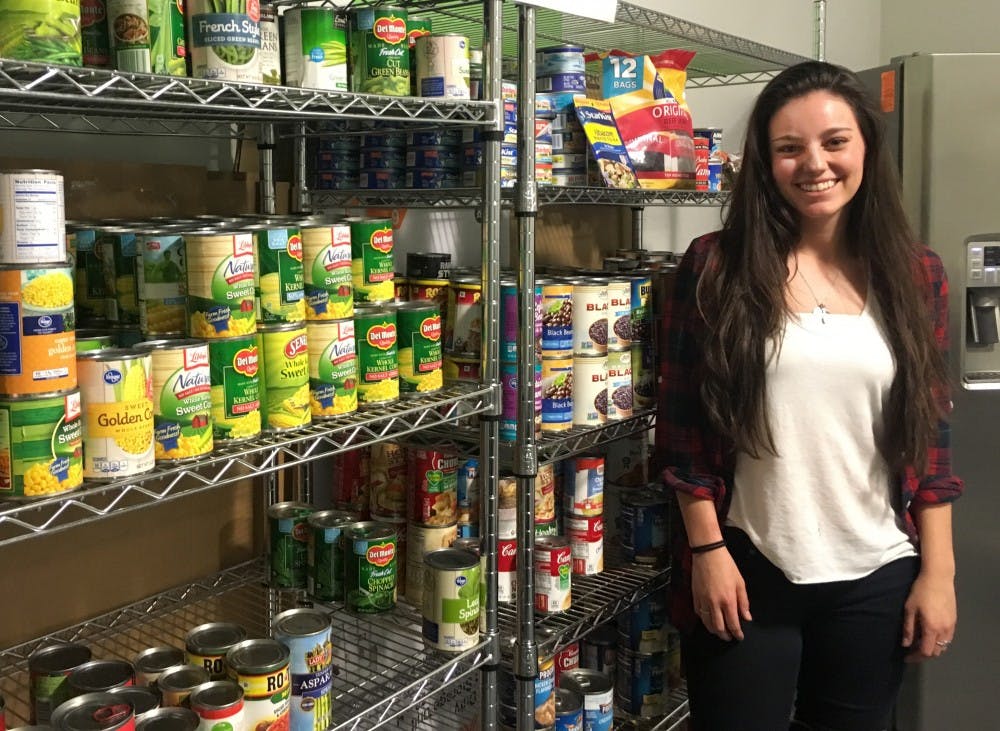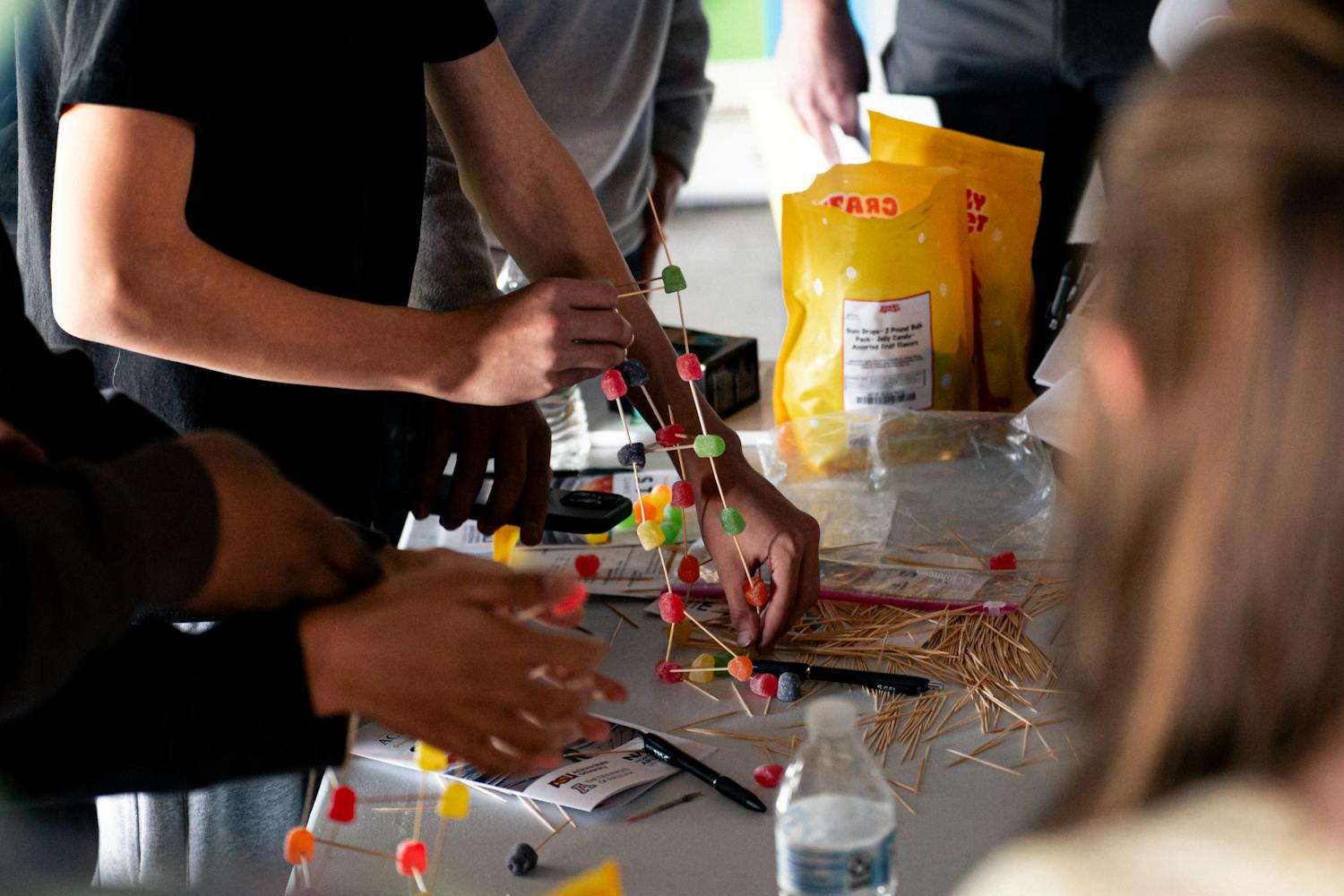After noticing students struggling to find their next meal, a group of ASU students came together to open a free food pantry on campus, intent on fighting hunger.
The ASU Student Anti-Hunger Coalition, a group made up of officers who belong to a variety of other groups on campus, established a goal of fighting food insecurity across the ASU campuses. Their newly implemented program, Pitchfork Pantry, gives students in need of access to free and nutritional food.
Becky Bender, the vice president of the Student Anti-Hunger Coalition, said the pantry takes in donations of non-perishables such as rice, noodles and canned products to redistribute to students free of charge.
“They don’t have to donate to get the product,” she said. “All they need is their ASU ID and then we have a certain amount that they’re allowed to get from the pantry at a certain time.”
Bender said the idea for the pantry evolved after a study conducted by an assistant professor from the College of Health Solutions.
“I worked for Dr. (Meg) Bruening, who conducted research last year called ‘devil spark’ where we collected data from freshman living in the dorms, looking at general eating habits and exercise habits,” she said.
The results of Bruening’s study revealed the problem of food insecurity in students.
“We found that about 30 percent of students living in the dorms are food insecure,” she said.
Bender said she could relate to the feeling of not being able to buy nutritious meals that would get her through a typical day.
“For me, when I was a freshman it was really hard to find nutrient-dense foods that would help me with my health but also that would help me feel full to get through classes,” she said. “I know for students it’s really hard to go to the grocery store and buy all those healthy foods because they’re a little more expensive than Top Ramen.”
Bender said the resources available at this pantry will benefit students even in the long run.
“This is really important so that students can come and get the foods that they need to support their bodies and for them in the future, they won’t have as many health problems,” she said.
Bender said her vision for the Student Anti-Hunger Coalition involves creating more change on campus.
“My aspirations for this (club) are to get on all four campuses, to be actively used and to implement more programs,” she said. “I want to implement a program that is sustainably using the food waste that we have in cafeterias and re-preparing it for students who don’t get to eat, who may have run out of meal plans, so that they can have dinner.”
Nico De Bruyn, a sophomore dietetics major, is the director of outreach for the organization and said he also got involved because of the work of Dr. Bruening.
De Bruyn said hunger in college students is often overlooked, but definitely exists on campus.
“I immigrated here, so I’ve seen hunger in third-world countries, so coming here it was like there shouldn’t be any hunger or insecurity, but there is,” he said.
De Bruyn said the key to getting students to use the pantry as a resource is to become a well-known place of support for students.
“We’ve only been open for a month, but I want to run out of food just because that’s how many students come and actually use the resource,” he said.
Kaysey England, a junior double majoring in dual business degrees with concentrations in sustainability and global logistics management, is a new member of the Student Anti-Hunger Coalition.
Along with joining this new club, England said he also works for university sustainability practices, and is the president of E.A.R.T.H. club at West campus, which stands for Environmental Advocacy, Restoration and Technology for Humanity.
England said the club was a good opportunity to find a solution between food waste and those struggling to find a steady food source on a daily basis.
“Obviously, as a college student myself there has even been some times where I struggled to find enough money to pay for a meal,” he said. “I believe that if we work through different sustainability initiatives, we can reduce or illuminate hunger on campus.”
England said that his connections to other clubs enhance his ability to help the Student Anti-Hunger Coalition.
“Although we’re separate clubs, we’re all trying to solve the same issues regarding hunger, sustainability and climate change,” he said. “It’s a no-brainer to partner with other organizations that have the same vision and goals as us.”
England said he hopes students will understand that the pantry is a valuable resource.
“I hope this brings awareness to others who are witnessing food insecurity with other peers or themselves,” he said.
Reach the reporter at kasando1@asu.edu or follow @karismasandoval onTwitter.
Like The State Press on Facebook and follow @statepress on Twitter.




